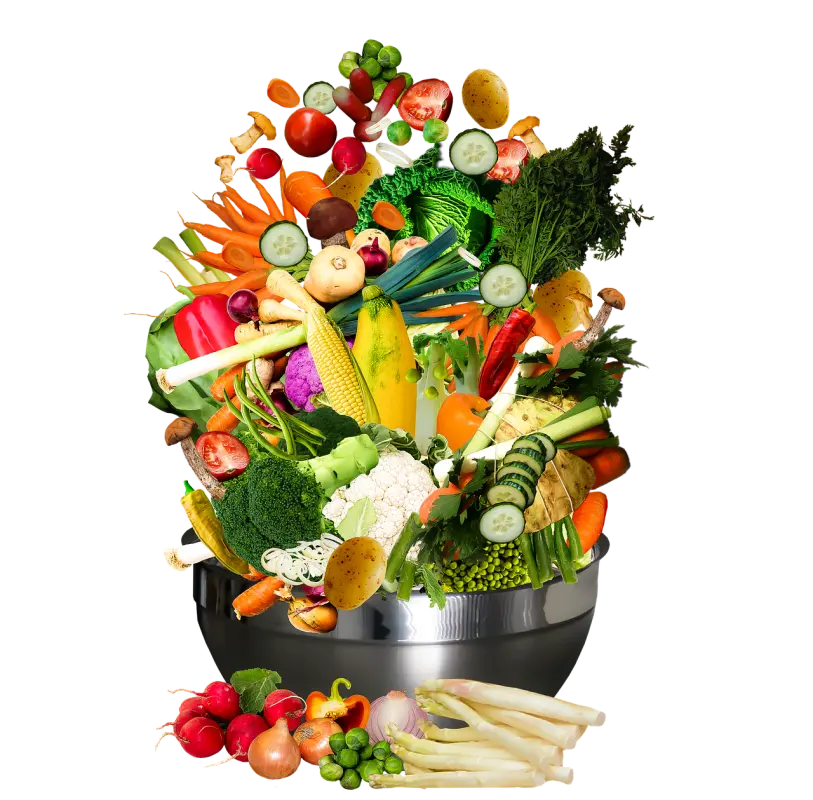The Greatest Plant-Based Protein Sources for Better Health
Plant-based diets are becoming more and more popular because of its many health advantages, which include better digestion, a lower risk of chronic diseases, and environmental sustainability. Getting enough protein is one of the main issues for those making the switch to a plant-based diet. Although it is well known that animal products are high in protein, there are many of plant-based sources that offer enough protein to promote weight loss, muscle growth, and general health. The top plant-based protein sources and their role in promoting a healthier lifestyle will be discussed in this article.
What Makes Protein Vital?
An important ingredient for immune system support, muscle growth, and general body processes is protein. It is made up of amino acids, some of which must be supplied from diet because they are essential. All of the essential amino acids are present in animal proteins, but when properly mixed, many plant-based sources can offer complete proteins.
Top Sources of Plant-Based Protein
1. Legumes: An Excellent Source of Protein
Rich in protein and fiber, legumes including chickpeas, black beans, and lentils support heart health, blood sugar balance, and digestion.
- Lentils: There are roughly 18 grams of protein in one cup of cooked lentils.
- With about 15 grams of protein per cup, chickpeas are a flexible protein source.
- Black beans: Provide roughly 15 grams of protein per cup and are rich in antioxidants.
2. Soy-Based Proteins: Edamame, Tempeh, and Tofu
Because soy products include all of the essential amino acids, they are one of the best plant-based protein sources.
- A half-cup of tofu, which is made from soybeans, has roughly 10 grams of protein.
- Tempeh: About 21 grams of protein per cup of fermented soybean product.
- Edamame: A cup of green soybeans has 17 grams of protein.
3. Quinoa: A Whole Grain of Protein
Quinoa, in contrast to most grains, has all of the essential amino acids, making it a complete protein.
- Each cooked cup contains 8 grams of protein.
- Extra Advantages: Rich in iron, magnesium, and fiber.
4. Nuts and Seeds: Sources of Protein Packed with Nutrients
Nuts and seeds offer vital minerals, healthy fats, and protein.
- An ounce of almonds has 6 grams of protein.
- Two tablespoons of chia seeds contain five grams of protein.
- Three tablespoons of hemp seeds contain nine grams of protein.
- One ounce of pumpkin seeds has seven grams of protein.
5. Whole Grains: Not Just Carbohydrates
Whole grains provide vital nutrients and a healthy dose of protein.
- One cup of oats has six grams of protein.
- One cup of brown rice has five grams of protein.
- One cup of barley contains four grams of protein.
6. Seitan: The Protein Known as "Wheat Meat"
Made from gluten, seitan is a high-protein alternative to meat.
- 21 grams of protein per 100 grams.
- Extra Advantages: Rich in iron and low in fat.
7. Spirulina: The Protein Superfood
The blue-green algae spirulina is high in antioxidants and protein.
- Two tablespoons contain eight grams of protein.
- Extra Advantages: Rich in iron, B vitamins, and immune-stimulating qualities.
8. Vegetables High in Protein
In addition to offering vital vitamins and minerals, many veggies help meet daily protein requirements.
- Five grams of spinach per cooked cup.
- 4 grams per cup of broccoli.
- Three grams of Brussels sprouts every half-cup.
Comparing Proteins from Plants and Animals
The amino acid composition of plant and animal proteins differs significantly. Animal proteins are complete because they have the proper amounts of each necessary amino acid. However, one or more necessary amino acids are absent from a large number of plant-based proteins. The answer? creating a comprehensive protein profile by combining various plant-based sources.
Important Distinctions:
- Digestibility: Plant proteins are high in fiber and typically easier to digest.
- Density of Nutrients: Proteins derived from plants contain more vitamins, minerals, and antioxidants.
- Sustainability: Compared to animal proteins, plant proteins have a smaller environmental impact.
Simple and Fast Plant-Based Recipes with High Protein
It is not difficult to include plant-based proteins in your diet. Here are some suggestions for quick and wholesome meals:
1. Quinoa Salad Packed with Protein
- One cup of cooked quinoa
- Half a cup of chickpeas
- Half an avocado, chopped
- One tablespoon of hemp seeds
- Olive oil and lemon juice for dressing
2. Stir-fried Tofu
- One cup of diced tofu
- One cup of mixed veggies, such as carrots, bell peppers, and broccoli
- One tablespoon of garlic and soy sauce
- Serve with brown rice.
3. Breakfast with Chia Pudding
- Two tablespoons of chia seeds
- One cup of almond milk
- One teaspoon of maple syrup
- topped with berries and almonds
Ways to Up Your Protein Consumption on a Plant-Based Diet
1. Blend Sources of Protein
Combining different sources can help build complete proteins because some plant proteins lack specific amino acids. Among the examples are:
- Beans with rice
- Wholegrain bread with chickpeas
- Whole-wheat bread topped with peanut butter
2. Eat a High-Protein Snack
Maintaining energy levels can be achieved by including snacks high in protein in your diet. Some excellent choices are:
- Seeds and nuts
- Plant-based protein bars with roasted chickpeas
3. Employ Powdered Plant-Based Proteins
Plant-based protein powders (including pea, hemp, and brown rice protein) can be a fantastic supplement for people who find it difficult to get enough protein from entire foods.
Plant-Based Proteins' Health Benefits
Making the switch to plant-based proteins has several health advantages, such as:
- Heart Health: A lower risk of heart disease and a lower cholesterol level.
- Weight control: A high fiber diet encourages fullness and discourages overeating.
- Better Digestion: Fiber promotes regular bowel movements and gut health.
- Lower Risk of Chronic Illnesses: Diets based mostly on plants have been associated with decreased risks of diabetes, cancer, and high blood pressure.
Conclusion
Your body can get all the protein it needs from a plant-based diet, which also has other health advantages. Including these items high in protein in your diet will improve your general health, regardless of whether you are completely plant-based or trying to cut back on meat. You can have a plant-based diet that is both balanced and high in protein by combining various protein sources and making informed dietary decisions.
Making the switch to plant-based proteins is a step toward a more sustainable planet and a healthier way of living. Get started now to see the advantages for yourself!





















Thnx a lot
ReplyDeleteThis article nicely highlights the best plant-based protein sources and their health benefits in a clear and simple way.
ReplyDelete❤️❤️❤️
ReplyDelete👍👍👍👍👍
ReplyDelete👍👍👍💯💯💯
ReplyDeleteGreat overview!👏👏
ReplyDelete"Thanks for sharing! This article made plant-based eating so much easier to understand."
ReplyDelete"This is exactly what I needed! Keep up the amazing work."
ReplyDeleteSimple and straight to the point. Perfect for anyone starting a plant-based journey!
ReplyDeleteGreat list! I didn’t realize there were so many protein-rich plant foods
ReplyDeleteI love how you explained the benefits of each source—really motivating!
ReplyDeleteI enjoyed reading thank you❤️
ReplyDeleteLoved this one! Clear, helpful, and a great push toward healthier, plant-powered choices. 🌱💪
ReplyDeleteGood article
ReplyDeleteGood article job😌
ReplyDelete